Filter by
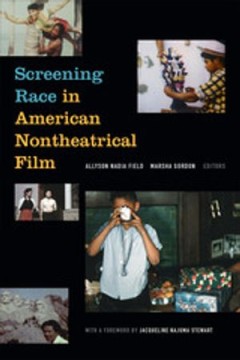
Screening Race in American Nontheatrical Film
Although overlooked by most narratives of American cinema history, films made for purposes outside of theatrical entertainment dominated twentieth-century motion picture production. This volume adds to the growing study of nontheatrical films by focusing on the way filmmakers developed and audiences encountered ideas about race, identity, politics, and community outside the borders of theatrica…
- Edition
- -
- ISBN/ISSN
- 9781478004141
- Collation
- -
- Series Title
- -
- Call Number
- 791.43 SCR s
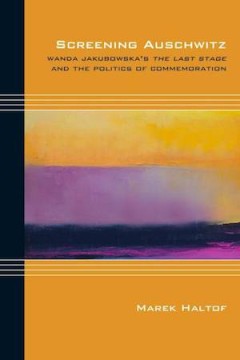
Screening Auschwitz: Wanda Jakubowska's The Last Stage and the Politics of Co…
This book about the early screen representation of Auschwitz-Birkenau deals with the classic Holocaust film made in 1948 in Poland by Auschwitz survivor, director Wanda Jakubowska. The Last Stage (or The Last Stop) is a pioneering work – the first narrative film to portray the former Nazi German camp. Haltof discusses Jakubowska's life and career before World War II, her imprisonment dur…
- Edition
- -
- ISBN/ISSN
- 9780810136083
- Collation
- -
- Series Title
- -
- Call Number
- 791.43 HAL s
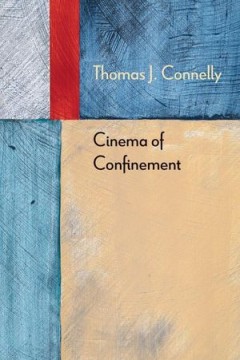
Cinema of Confinement
"In this book, Thomas J. Connelly draws on a number of key psychoanalytic concepts from the works of Jacques Lacan, Slavoj Žižek, Joan Copjec, Michel Chion, and Todd McGowan to identify and describe a genre of cinema characterized by spatial confinement. Examining classic films such as Alfred Hitchcock's Rope and Stanley Kubrick's The Shining, as well as current films such as Room, Green Room…
- Edition
- -
- ISBN/ISSN
- 9780810139237
- Collation
- -
- Series Title
- -
- Call Number
- 791.43 CON c
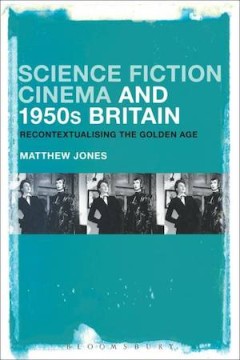
Science Fiction Cinema and 1950s Britain: Recontextualising the Golden Age
For the last fifty years, discussion of 1950s science fiction cinema has been dominated by the view that the genre reflected US paranoia about Soviet brainwashing and the nuclear bomb. However, classic films, such as Invasion of the Body Snatchers (1956) and It Came from Outer Space (1953), were regularly exported to countries across the world. The histories of their encounters with foreign aud…
- Edition
- -
- ISBN/ISSN
- 9781501322532
- Collation
- -
- Series Title
- -
- Call Number
- 791.435 JON s

Martin Scorsese's Divine Comedy: Movies and Religion
Catherine O'Brien draws on the structure of Dante's Divine Comedy to explore Scorsese's feature films from Who's that knocking at my door (1967-69) to Silence (2016). In Dante's poem in 100 cantos, the Pilgrim is guided by the poet Virgil down through the circles of Hell in Inferno; he then climbs the steep Mountain of the Seven Deadly Sins in Purgatory; and he finally encounters God in Paradis…
- Edition
- -
- ISBN/ISSN
- 9781350003279
- Collation
- -
- Series Title
- -
- Call Number
- 791.43 OBR m
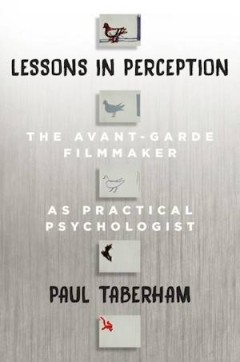
Lessons in Perception: The Avant-Garde Filmmaker as Practical Psychologist
Lessons in Perception seeks to clarify notoriously elusive themes of the avant-garde with the use of existing research from the field of psychology. There is a long-standing history of reference to psychological concepts in relation to avant-garde film, such as its unique relationship to memory, visual perception, narrative comprehension, and synesthesia. Yet direct analysis of these topics in …
- Edition
- -
- ISBN/ISSN
- 9781785336416
- Collation
- -
- Series Title
- -
- Call Number
- 791.43 TAB l
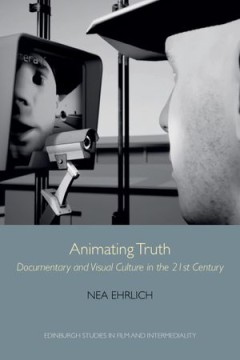
Animating Truth: Documentary and Visual Culture in the 21st Century
Animating Truth examines the rise of animated documentary in the 21st century, and addresses how non-photorealistic animation is increasingly used to depict and shape reality.
- Edition
- -
- ISBN/ISSN
- 9781474463362
- Collation
- -
- Series Title
- -
- Call Number
- 791.43 EHR a
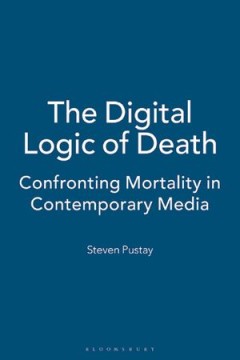
The Digital Logic of Death: Confronting Mortality in Contemporary Media
In The Digital Logic of Death, Steven Pustay skillfully makes visible the immensely important but often overlooked role that moving images play in shaping our understanding of mortality. This relationship, he argues, is made all the more urgent by the technologies of the digital age, which have profoundly altered our ability to represent and contemplate death through moving images, resulting in…
- Edition
- -
- ISBN/ISSN
- 9781501364082
- Collation
- -
- Series Title
- -
- Call Number
- 790 PUS d
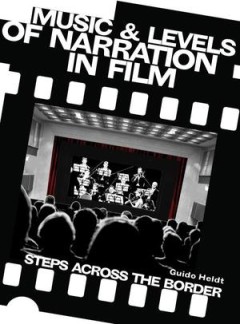
Music and Levels of Narration in Film
This is the first book-length study of the narratology of film music, and an indispensable resource for anyone researching or studying film music or film narratology. It surveys the so far piecemeal discussion of narratological concepts in film music studies, and tries to (cautiously) systematize them, and to expand and refine them with reference to ideas from general narratology and film narra…
- Edition
- -
- ISBN/ISSN
- 9781783202102
- Collation
- -
- Series Title
- -
- Call Number
- 791.43 GUI m
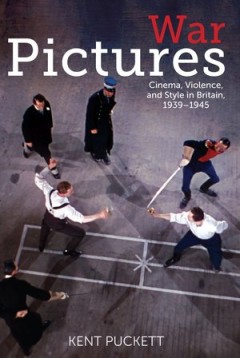
War Pictures: Cinema, History, and Violence in Britain, 1939-1945
In 'War Pictures', Puckett looks at how Britain imagined, saw, and sought to represent its war during wartime. How did the material and conceptual pressures of total war affect what it meant to see or to make art? How did culture and, in particular, cinema function as propaganda, as criticism, as a form of self-analysis, as a reflection on war and the kinds of violence it tends to unleash? How …
- Edition
- -
- ISBN/ISSN
- 9780823275748
- Collation
- -
- Series Title
- -
- Call Number
- 777 PUC w
 Computer Science, Information & General Works
Computer Science, Information & General Works  Philosophy & Psychology
Philosophy & Psychology  Religion
Religion  Social Sciences
Social Sciences  Language
Language  Pure Science
Pure Science  Applied Sciences
Applied Sciences  Art & Recreation
Art & Recreation  Literature
Literature  History & Geography
History & Geography